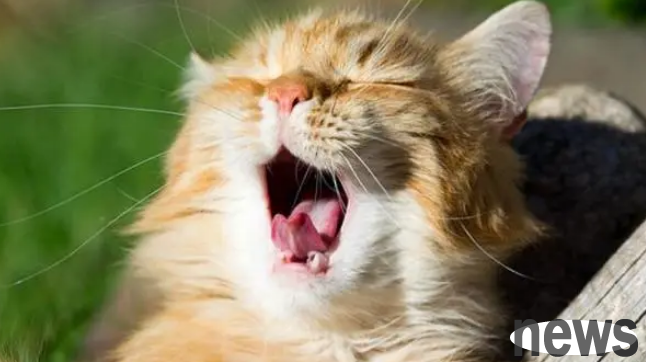When you communicate with the cat, will you meow? If it were a Japanese person, he/she would most likely say hello to the cat with "にゃ~" (pronunciation: nyan, similar to "天" in Chinese). The words used to learn animal calls in di...
When you communicate with the cat, will you meow? If it were a Japanese person, he/she would most likely say hello to the cat with "にゃ~" (pronunciation: nyan, similar to "天" in Chinese).
The words used to learn animal calls in different languages vary, sometimes even far apart. Modern Chinese often uses "hululu" to describe the sound of a cat who feels happy and sniffing. English is "purr", Japanese is "goro goro" (pronounced: goro goro), Hungarian is dorombolás (pronounced: doromb), French is ronron/ronronner, and German is schnurren (pronounced: shinuhen).
is clearly imitating the same sound, why are there so many differences? How did humans invent so many strange onotropical words?

In onomatopoeia, humans can only reach a partial consensus
The above words used to simulate various sounds in the real world are called onomatopoeia, also known as onomatopoeia. Onomatopoeia in a broad sense includes the sound and extension of any object, while onomatopoeia in a narrow sense mostly refers to the sounds made by humans and animals, such as crying, shouting, cats, barking of dogs, and birds singing.
The relationship between onomatopoeia and pronunciation is closer than any other word category. According to this principle, onomatopoeia should be as close to the actual sound as possible in terms of vocabulary selection, and onomatopoeia should also be very similar between languages of different countries. But, is this indeed true?
In different languages, sometimes there are cases of similar onomatopoeia. Take the sound of sheep as an example. Chinese (ba), Japanese (めー), Korean (메에), French (bê), English (maehh), Denmark (mæh), German (Mäh) and other languages all use sounds similar to "ba" to describe the call of sheep.
The sounds of cat meows are similar in various countries, such as "meow meow" in English, "miau miau" in Hungarian, "miau miau" in Spanish, and "เหมียวๆ" in Thai (pronunciation: mĭeow mĭeow), etc.
Although Chinese and Japanese have not reached an agreement on the sound of cat meowing, the two languages are very similar in describing animal barking such as ducks, cows, dogs: ducks are "gaga" in modern Chinese, and "gaga" in Japanese; cows are "moo" in modern Chinese, and "moo" in Japanese; dog barking is "woo" in modern Chinese, and "wanwan" in Japanese.

Some languages also have their own unique animal onomatopoeia. For example, in English, there is a word "peent" specifically used to describe the call of a hilly sniper (a fat body, short legs and long mouth wader), in Swedish, there is a word "bröl" specifically used to describe moose, and in Australia and New Zealand, there is a word "chortle" specifically used to describe brush-tailed possum. The Norwegian band Ylvis wrote a song specifically used to describe the fox's screams!
It is obviously all pigs, and they use "hum" in Chinese, "oink" in English, "groin" in French (pronunciation: hoyihoyi), and "röf-röf" in Hungarian (pronunciation: hofuhofufu).
is also a rooster crowing, Chinese is "Oh Ooh", English is "cock-a-doodle-doo", Spanish is "quiquiriquí", Korean is "꼬끼오" (pronunciation: ggo gee oh). The same mouse as
is used as "squeak" in Chinese, "ちゅの" in Japanese, and "squitt squit" in Italian. The biggest gap with Chinese is probably the German fiep/piep/ fiep piep (sound: beep), but modern Chinese uses it to describe the sound of a car horn or whistle!
Why is there such a big gap between animal onomatopoeia between different languages?

In a complete language system, the formation and development of onomatopoeia are not mechanical replication, but are influenced by pronunciation systems and cultural habits, and have the characteristics of convention.
Take the sound of bee flapping its wings as an example. The limitations of human hearing range and vocal tracts mean that we can only hear and imitate some of the bees flapping their wings. On the other hand, the phonology system in the existing language system will filter and strengthen certain pronunciation rules, ultimately promoting the formation of a certain onomatopoeia.
Bees in most languages fly "sizzling", while the sound of bees flying in Japanese is "boon-boon". Byron Ahn, a linguist at Princeton University, pointed out that based on the Japanese phonology department regulations, except for the pronunciation of "n", Japanese words generally do not end with consonants (because of this, the sound of clocks in Japanese is not "tick-tock", but "kachi-kachi"), which may be the reason why Japanese bees are unique.
Professor An believes that the influence of phonology on onomatopoeia is similar in English. In English, people do not use words that are composed of only one consonant, such as "Z". If you want to use a consonant to form a word, you must add a vowel. Therefore, after "Z" plus "U", the wing sound of bees in English is formed. So, why don’t we just say “uzz”? Linguists cannot answer this question for the time being. It is very likely that the addition of "b" is just a random event, and after that, this practice has been adopted and formed a convention.